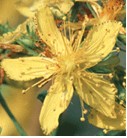Other Therapeutic Options
Combination of medications and psychotherapy
There are very few clinical trials to guide with a specific selection of the optimal combination of antidepressants and psychotherapy. The same considerations in selecting monotherapy of antidepressants or psychotherapy apply. Monitoring with the same frequency for side effects, efficacy, adherence, and safety are the same in combination as when either therapy is given alone. If after 4 – 8 weeks there is not a moderate improvement in baseline symptoms, then a reassessment of the diagnosis, medication regimen, adherence, substance or alcohol use is in order. Change in treatment can be considered. If 4 – 8 weeks after the change in treatment there is not a moderate improvement in symptoms, another review should occur. Other treatment options should be considered in consultation with a psychiatric specialist if the patient fails to respond.
Electroconvulsive therapy (ECT)
ECT is exclusively available through an experienced psychiatric specialist. Remission rates with ECT are around 60 – 80 percent in severe major depressive disorder (UK ECT Review Group, Lancet 2003), and the maximum response is usually 3 weeks after treatment. ECT is the first line treatment when there is severe depression with psychotic features, psychomotor retardation, or resistance to medications. Suicidal patients and pregnant patients may also have rapid benefits from ECT. ECT consists of 6 – 12 treatments (2 to 3 times a week). Because the relapse rate after ECT is more than 50 percent, most psychiatrist start prophylactic treatment with antidepressants and adjuvant medications such as lithium. Postictal confusion, retrograde and anterograde memory impairment usually improves in a few days.
St. John’s Wort

A 35 year old male who is HIV positive, takes antiretroviral medications, and lives with severe major depression has achieved remission of his depression on his SSRI but complains of lack of sexual libido. He read some information about St. John’s wort and asks if it would be appropriate to treat his depression. Which one of the following statements is appropriate advice to this patient: (Choose the best answer.)